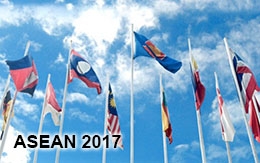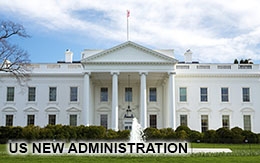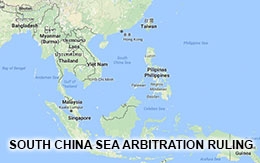UNCLOS Institutions And Their Roles
The 1982 United Nations Convention on the Law of the Sea (UNCLOS) established three institutions: the International Tribunal for the Law of the Sea (ITLOS), the International Seabed Authority (ISA) and the Commission on the Limits of the Continental Shelf (CLCS).

The 1982 United Nations Convention on the Law of the Sea (UNCLOS) established three institutions: the International Tribunal for the Law of the Sea (ITLOS), the International Seabed Authority (ISA) and the Commission on the Limits of the Continental Shelf (CLCS). Although structure, composition and area of competence of these institutions are quite different, they are nevertheless to be considered complementary as their task is to serve the States parties to UNCLOS in ensuring its coherent and efficient implementation, thus also securing the peaceful uses of the seas and the undisputed exploitation of maritime resources as a matter of common interest.
While ITLOS and the ISA are autonomous international organizations, though closely associated with the UN system, the CLCS is a treaty body consisting of independent national experts established to perform certain functions under the Convention and directly serviced by the United Nations. A common feature of these three institutions is that they have by now been in existence for about twenty years and this is thus a good time to consider whether the expectations of their founders have been met.
ITLOS
ITLOS is the specialized international judicial body for the settlement of disputes concerning the interpretation or application of UNCLOS, and for the rendering of advisory opinions. It is the largest world-wide judicial body, composed of 21 judges “with recognized competence in the field of the law of the sea”, representing the principal legal systems and the various geographical regions.
The Tribunal is open to States parties to UNCLOS, other States, as well as other entities, such as international organizations and natural or legal persons in any case expressly provided for in Part XI of the Convention – relating to exploration and exploitation of the international seabed “Area” – or in any case submitted pursuantto any other agreement conferring jurisdiction on the Tribunal that is accepted by all the parties to that case. Access can thus be considered the major difference between ITLOS and the ICJ.
ITLOS is, however, only one of four means for the settlement of disputes under UNCLOS entailing binding decisions. The other alternative means are the ICJ, an arbitral tribunal constituted in accordance with Annex VII and a special arbitral tribunal under Annex VIII for certain categories of disputes. Such flexibility as to the choice of fora available to States parties was indispensable in order to achieve consensus on compulsory dispute settlement at the Third United Nations Conference on the Law of the Sea (the Conference).
The settlement of disputes is dealt with in Part XV of UNCLOS, the principal provision being Article 287, which provides that a State party is free to choose one or more of the aforementioned four means by submission of a written declaration to the UN Secretary-General. So far 52 States have made such a declaration – 39 of which have chosen ITLOS as the preferred procedure or as one possibility. In the absence of such a declaration or if the parties have not accepted the same procedure under Article 287, they are deemed to have accepted arbitration under Annex VII to UNCLOS, which is thus the default procedure.
The jurisdiction of ITLOS is, however, subject to limitations spelled out in Article 297 UNCLOS relating to the exercise of certain discretionary powers by the coastal State and optional exceptions according to Article 298, for matters such as sea boundary delimitations. In two instances, ITLOS has compulsory jurisdiction independently of the choice of procedure mechanism under Article 287: these are Article 290(5) regarding provisional measures when a dispute has been submitted to an arbitral tribunal, pending its constitution, and Article 292 concerning the prompt release of vessels and/or crews.
The Seabed Disputes Chamber has been granted exclusive and compulsory jurisdiction over disputes arising out of the exploration and exploitation of the “Area”, including those between States parties and the ISA, independent of any choice of procedure made under Article 287. It shall furthermore give advisory opinions at the request of the Assembly or the Council of the ISA “on legal questions arising within the scope of their activities.”
Although UNCLOS does not explicitly provide for advisory jurisdiction of ITLOS as a full tribunal, in 1997 it decided to include in Article 138 of its Rules the possibility of exercising advisory jurisdiction. Accordingly, it “may give an advisory opinion on a legal question if an international agreement related to the purposes of the Convention specifically provides for the submission to the Tribunal of a request for such an opinion”.
ITLOS has already established a reputation for an expeditious and efficient management of cases and made substantial contributions to the development of international law, especially to environmental law. Thus far altogether 25 cases, including two requests for advisory opinion, have been submitted to the Tribunal. These cases have provided a good opportunity for a number of important pronouncements, such as regarding freedom of navigation, the nationality of ships, the use of force on the seas, the protection of the marine environment, the delimitation of the continental shelf beyond 200 nautical miles, the question of bunkering of fishing vessels in the EEZ, the obligations of States sponsoring activities in the international seabed “Area” and the obligations of flag States and international organizations regarding illegal, unregulated and unreported (IUU) fishing in the EEZs of third States.
....
Click here for full text.
Prof. Helmut Turk is Ambassador, Chairman of the Review Committe of International Seabed Authority, former Judge and Vice - President of the International Tribunal for the Law of the Sea.
The longer version of this paper was presented at 8th South China Sea Conference: “Cooperation for Regional Security and Development” on November 13-15, 2016 in Nha Trang City, Viet Nam. The conference is co-organized by the Diplomatic Academy of Vietnam (DAV), the Foundation for East Sea Studies (FESS) and the Vietnam Lawyers’ Association (VLA).










